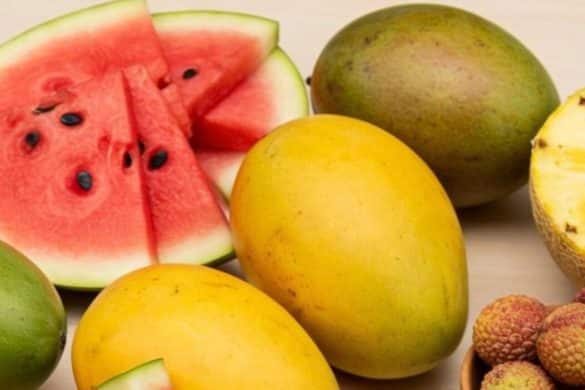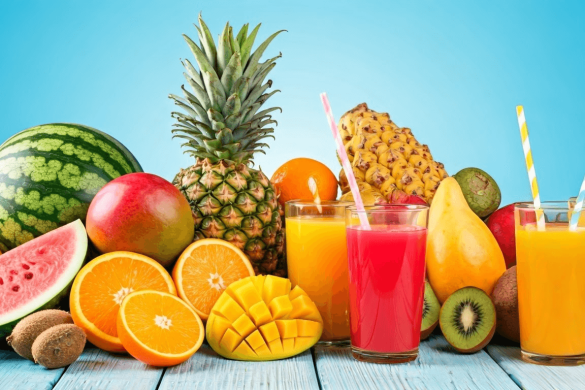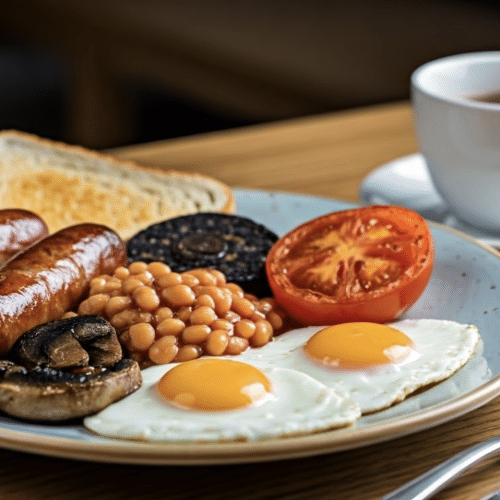Key Highlights
- A balanced diet is important for the growth and proper health of your child’s brain and cognitive function.
- Some foods that have essential nutrients may help improve focus and support better academic performance.
- Fatty acids like omega-3, found in fatty fish, are key to brain growth and brain health.
- Antioxidants that are in berries and colourful vegetables work to protect brain cells from harm.
- Adding these foods to their meals is a good way to help kids learn healthy habits for the brain that may last for life.
- A healthy and balanced diet gives a steady flow of energy to help them learn and stay focused.
Are you trying to find ways to help your child do well in school and in life? A big part of this is what your child eats. Proper nutrition is needed for good brain development and strong cognitive function. Healthy foods give the brain what it needs.
These foods can help your child feel more energetic, improve focus, and support healthy brain growth. If you make some small changes in your child’s diet and help them practice healthy habits, you can give them the tools they need for better academic performance and a healthy brain that will serve them for many years.
Read this blog to learn about all the essential food items needed for the development of your child’s brain and what your child should eat.
What Are The 15 Top Brain Foods For Children?
Helping your child’s brain development can be simple. You just need to pick a few food groups the right way. This helps your child have a healthy brain, makes their brain cells strong, and boosts their cognitive performance.
Oily fish, blueberries, nuts and seeds, whole grains, leafy green vegetables, eggs, dark chocolate, coffee, turmeric, and avocado are essential brain-boosting foods. Let’s talk about them in detail in the following sections.
1. Seafood (Salmon, Sardines): Rich in Omega-3s
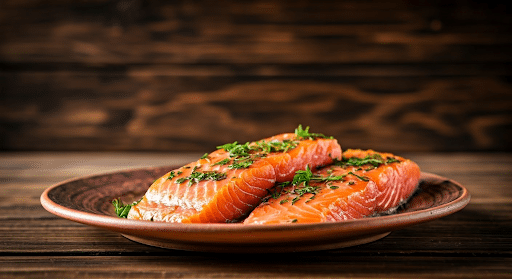
Plate of fatty fish on wooden table.
Seafood like salmon and sardines are true brain-boosting superheroes for kids! Packed with essential omega-3 fatty acids (DHA and EPA), these nutrient powerhouses support memory, enhance focus, and boost overall brain development. Research by the National Library of Medicine even shows that kids who eat more omega-3s tend to have sharper thinking and stronger cognitive skills.
Among these, salmon really steals the spotlight. Not only does it deliver more omega-3s than tuna, but it also helps strengthen the immune system, making it a fantastic choice for growing kids.
If you’re looking for an easy and delicious way to incorporate salmon into your family meals, this cheesy baked salmon with brown rice is the perfect recipe to try. It’s simple, healthy, and packed with nutrients that support brain growth.
Ingredients:
- 1 small salmon fillet
- ½ cup cooked brown rice
- 1 tablespoon olive oil
- 1 tablespoon lemon juice
- A pinch of salt and pepper
Recipe:
- Brush salmon with olive oil, salt, and pepper.
- Bake at 180°C (350°F) for 12–15 minutes until flaky.
- Drizzle lemon juice on top.
- Serve with brown rice for a hearty, brain-boosting meal.
2. Berries: Packed with Antioxidants

Fresh blueberries in a glass bowl
Berries like blueberries, strawberries, and blackberries are full of taste and loaded with good nutrients. These fruits have high levels of antioxidants, such as vitamin C and anthocyanins. The antioxidant properties help protect the brain from oxidative stress. This kind of stress can hurt cells and lead to cognitive decline over time.
These deep-coloured berries carry potent plant compounds that have anti-inflammatory and antioxidant effects. Increased consumption of flavonoids found in blueberries is associated with a longer life span, improved metabolic function, and improved brain function.
If you want to sneak in these vibrant fruits in a fun, quick way, try this simple berry-yoghurt bowl, a colourful, antioxidant-packed treat your kids will love!
Ingredients:
- ½ cup mixed berries
- ½ cup plain or vanilla yoghurt
- 1 tablespoon chia seeds
Recipe:
- Layer yoghurt and berries in a bowl or jar.
- Sprinkle chia seeds on top.
- Chill for 10 minutes and serve.
3. Nuts, Nut Butters and Seeds: Healthy Fats for Focus
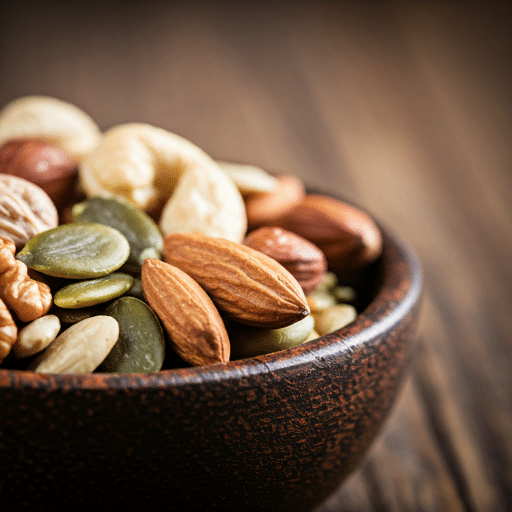
Nuts and Seeds in a bowl.
Nuts like walnuts, seeds like chia seeds, flax seeds, etc, and nut butters are wonderfully good for kids’ brains. They have healthy fats, protein, vitamin E, and plant-based omega-3s. Vitamin E helps to protect the nervous system and prevents cognitive decline as they age.
For a satisfying, easy-to-make snack that fuels focus, this apple-almond butter combo hits the spot perfectly.
Ingredients:
- 2 tablespoons almond butter
- 1 apple, sliced
Recipe:
- Spread almond butter over apple slices.
- Serve as a crunchy, filling snack.
4. Whole Grains: Steady Energy for Learning
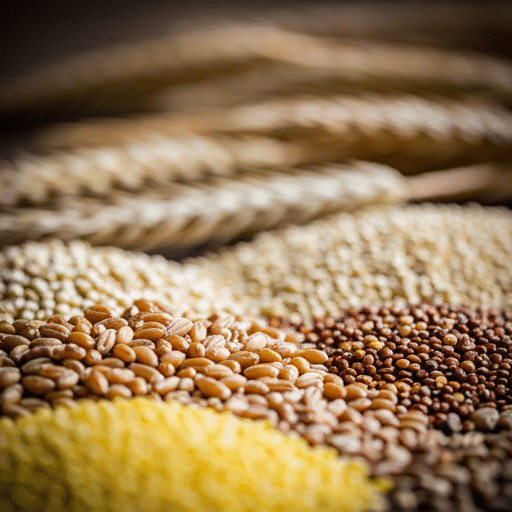
Different Whole Grains.
When it comes to fuelling young minds, whole grains are the unsung heroes. Packed with fibre, complex carbs, and essential B vitamins, they release energy slowly, helping kids stay focused and alert without sugar crashes. Whole grains like oats, brown rice, and whole-wheat bread are fantastic for maintaining steady concentration levels throughout school hours.
To start the day with balanced energy, this warm honey-oat breakfast is the perfect choice for busy mornings.
Ingredients:
- ½ cup rolled oats
- 1 cup milk
- 1 teaspoon honey
- ½ banana, sliced
Recipe:
- Cook oats in milk for 3–5 minutes until soft.
- Stir in honey and top with banana slices.
You can opt for whole-grain bread, quinoa, brown rice, and pasta as they’re some of the best energy-supplying foods for kids.
5. Colourful Vegetables: Vitamins for Cognitive Growth
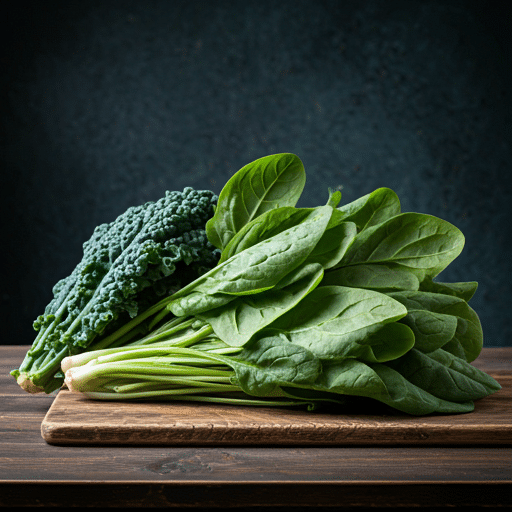
Green leafy vegetable on a table.
Vegetables that have deep and rich colours can really help a growing brain. Foods like carrots, sweet potatoes, tomatoes, broccoli, and leafy greens like spinach or kale are packed with antioxidants, which keep the brain strong and healthy.
These leafy greens have magnesium, potassium, folate, flavonoids, and vitamin K. Folate can even help children get better scores when it comes to thinking skills. Eating leafy greens often is one of the best ways to support your child’s brain health.
Kids who eat more leafy greens often perform better in memory and problem-solving tasks.
For a fun, kid-approved twist, these baked sweet potato fries are a crispy, brain-healthy upgrade to regular fries!
Ingredients:
- 1 sweet potato, sliced
- 1 tablespoon olive oil
- A pinch of salt
Recipe:
- Toss sweet potato slices in olive oil and salt.
- Bake at 200°C (400°F) for 20 minutes.
- Serve as a healthy “fry” alternative.
6. Eggs: Nature’s Brain Booster

Eggs kept on a table.
Eggs are one of the best kid-friendly foods for brain health. The yolk is rich in vitamins B6 and B12, folate, choline, and selenium, which support memory, learning, communication between brain cells, and a strong nervous system.
Studies show kids who regularly eat eggs often have better brain development and stronger performance in school. The best part? They’re easy to add to meals, like scrambled eggs for dinner, a breakfast burrito, or a fried egg on toast.
To make mornings easier (and tastier), try this quick scrambled egg recipe that’s packed with protein and brain-boosting nutrients.
Ingredients:
- 2 eggs
- 1 teaspoon butter
- Salt to taste
Recipe:
- Beat eggs with a pinch of salt.
- Melt butter in a pan and scramble until fluffy.
7. Dark Chocolate: Best Brain Food For Kids

Dark chocolate image.
Quality dark chocolate is a fantastic brain food as it is full of flavonoid antioxidants, which help fight swelling in the body and protect the brain. The two main ones, catechin and epicatechin, can help to improve cognitive performance.
Eating this tasty treat will greatly help your kids’ brains work better.
Flavonoids in chocolate gather in the areas of the brain responsible for learning and memory. They stimulate blood flow to the brain, promoting the growth and development of neurons and improving their functioning.
They enhance memory and help slow down age-related mental decline. Research has also indicated that dark chocolate consumers experience increased positive feelings and happiness.
For a cosy, brain-fuelling treat, this warm dark chocolate milk is both comforting and nourishing for kids.
Ingredients:
- 1 small square (20g) dark chocolate
- 1 cup warm milk
Recipe:
- Melt dark chocolate in warm milk.
- Stir well and serve as a warm brain-fuelling drink.
8. Apples: Fibre and Antioxidants for Steady Energy
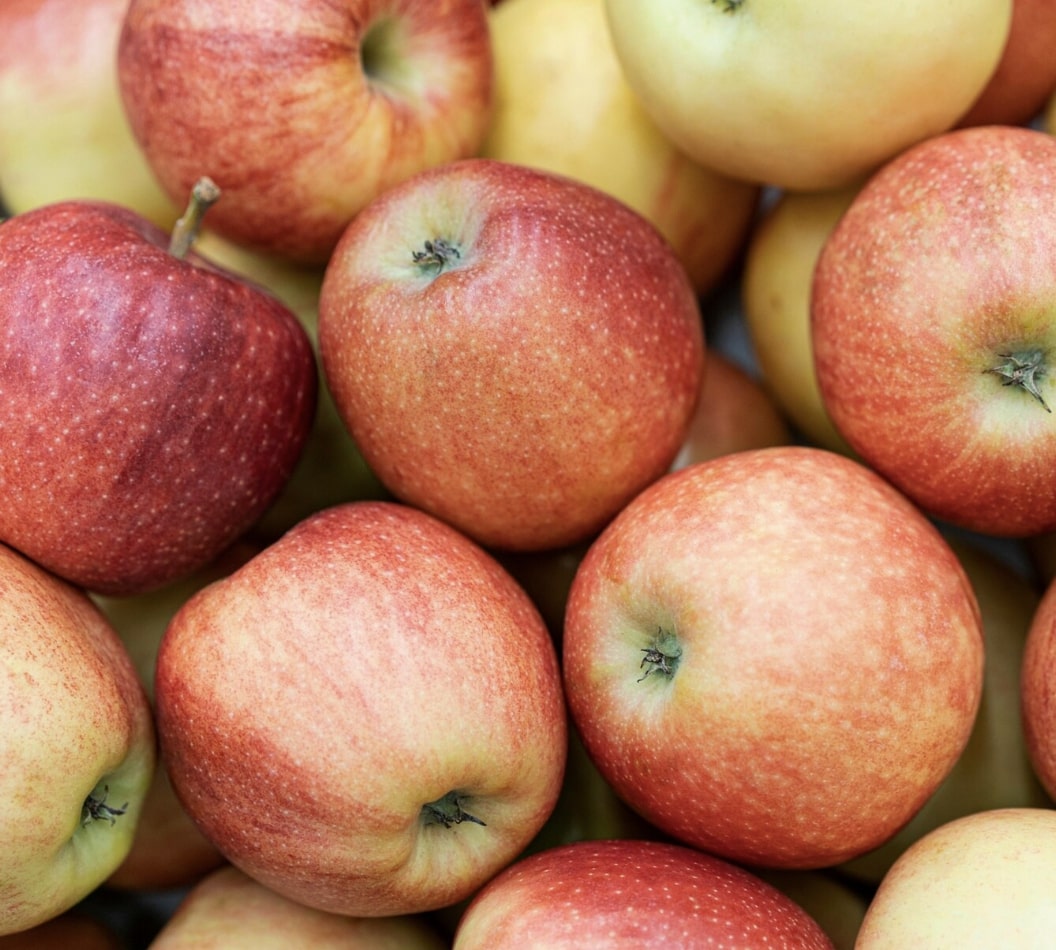
A bunch of apples
Apples are rich in fibre and antioxidants like quercetin, which protect brain cells from oxidative damage. The slow-release natural sugars in apples provide steady energy, keeping kids alert and focused without sudden crashes.
This helps kids stay alert, focused, and productive through the day without sudden energy dips. To support kids’ brain health, it’s best to avoid foods high in refined sugars and processed grains, as these can cause rapid spikes and crashes in blood sugar that may impair focus and learning.
For a delicious snack that balances sweetness and protein, try this apple-peanut butter combo that kids adore.
Ingredients:
- 1 apple, sliced
- 1 tablespoon peanut butter
Recipe:
- Spread peanut butter on apple slices.
- Serve as an energising after-school snack.
9. Turmeric: Good Brain Development Food For Kids

A bowl full of Turmeric
This brilliant yellow spice, usually added to your curry, has a potent active compound called curcumin. It can cross the blood-brain barrier, contributing directly to the growth and development of your kids’ brains.
It has potent antioxidant and anti-inflammatory properties that protect and heal the brain from oxidative damage and inflammation.
The curcumin in turmeric has several potential brain benefits as it boosts the growth hormone that helps in the formation of new connections within the brain.
For a soothing, immune-boosting brain drink, golden milk is a family favourite that every kid enjoys.
Ingredients:
- 1 cup warm milk
- ¼ teaspoon turmeric powder
- A pinch of black pepper
Recipe:
- Stir turmeric and pepper into milk.
- Heat gently and serve as “golden milk.”
10. Avocado
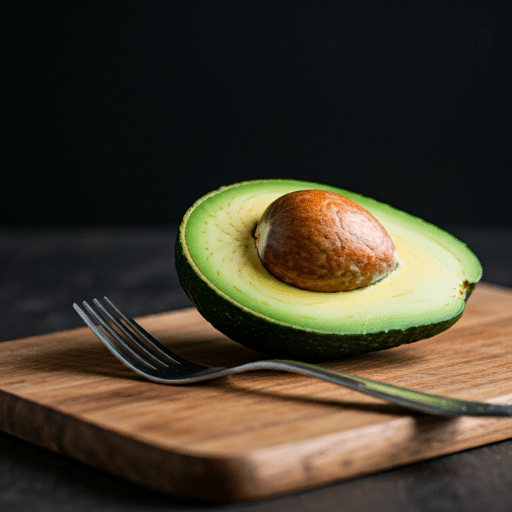
Avocado and a fork.
Avocados are known for their high content of monounsaturated fats and being rich in vitamins K, C, B, E, and fibre.
With its healthy supply of Vitamin K and folate, avocados help prevent the formation of blood clots in the brain and improve cognitive abilities of your kids’ brains, like concentration and memory.
For a simple and tasty way to include avocado daily in your kids’ diet, try this quick toast recipe that’s always a hit.
Ingredients:
- ½ ripe avocado
- 1 slice whole-grain toast
Recipe:
- Mash avocado and spread on toast.
- Sprinkle a little salt or lemon juice before serving.
11. Yoghurt: Probiotics for Gut-Brain Connection

bowl of yoghurt with fruits
Creamy, cool, and full of live cultures, yoghurt is a secret brain booster! It’s loaded with B vitamins, iodine, and probiotics that support brain development, hormone regulation, and mood balance. A healthy gut helps improve focus, emotional well-being, and immunity, making yoghurt a must-have for growing kids.
For a wholesome breakfast or after-school snack, this layered yoghurt parfait is both nutritious and fun to eat.
Ingredients:
- ½ cup yoghurt
- ¼ cup granola
- ¼ cup diced fruit
Recipe:
- Layer yoghurt, fruit, and granola in a cup.
- Chill and serve as a quick breakfast or snack.
12. Beans and Lentils: Protein for Mental Stamina
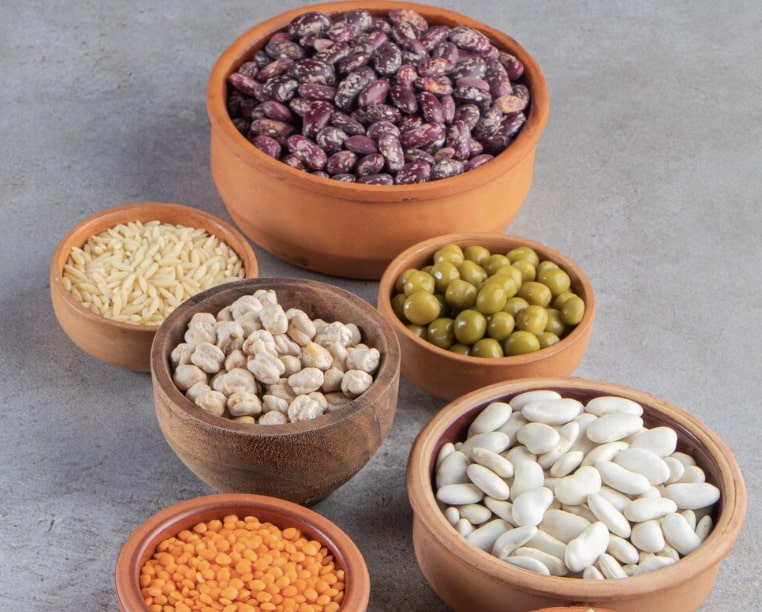
beans and lentils in a bowl
Small but mighty, beans and lentils are packed with plant protein, fibre, and omega-3s that keep your child’s brain fuelled and focused. They provide steady energy and essential nutrients like iron and zinc for better concentration and memory retention.
If you’re looking for a hearty, brain-friendly meal, this simple lentil dish is wholesome, warming, and easy to prepare.
Ingredients:
- ½ cup cooked lentils
- ½ teaspoon cumin
- ½ teaspoon turmeric
- Salt to taste
Recipe:
- Heat lentils with cumin and turmeric for 2–3 minutes.
- Serve with rice or roti.
13. Lean Beef
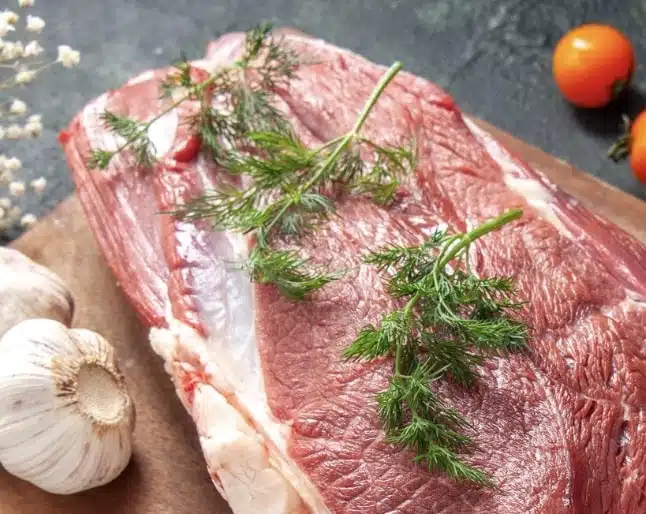
lean beef and garlic on a chopping board
Iron is an important mineral that helps kids feel strong and focus better. Lean beef gives the body iron that it can use well. Eating only one ounce a day can help the body take in iron from other food sources, so it is a good choice for a child’s meal.
Iron is vital for strong attention and learning, and lean beef is one of the best sources. Just a small serving provides iron, zinc, and B vitamins - all crucial for memory, focus, and healthy blood flow to your kids’ brains.
Kids who get enough iron tend to perform better in school and stay more energetic.
Here’s a quick, tasty lean beef recipe that’s full of brain-boosting nutrients for your kids.
Ingredients:
- 100g lean beef (minced or cubed)
- ½ onion, chopped
- 1 teaspoon olive oil
Recipe:
- Heat the oil and sauté the onions.
- Add beef and cook until browned.
- Season lightly and serve with vegetables.
If you do not eat meat, you can try black bean or soy burgers. They are also a good source of iron.
14. Green Tea: Gentle Alertness
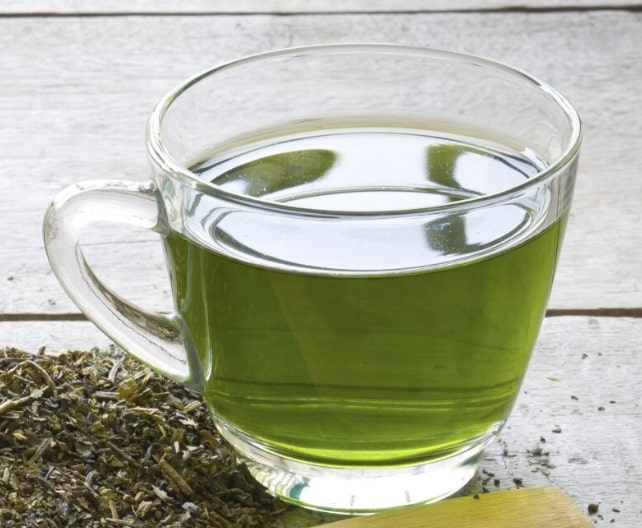
green tea and tea leaves on a table
Gentle, refreshing, and brain-boosting, green tea offers calm energy without the caffeine jitters. Thanks to its natural L-theanine content, it promotes focus, relaxation, and mental clarity. It’s a great beverage for older kids who need sustained concentration during study time.
For a light, soothing drink your kids will enjoy, try this honey-lemon green tea.
Ingredients:
- 1 green tea bag (decaf for kids)
- 1 teaspoon honey
- A few drops of lemon juice
Recipe:
- Brew tea for 2–3 minutes.
- Add honey and lemon before serving.
For kids, decaf green tea or iced green tea with honey and lemon is a safe, refreshing option.
15. Oranges: Vitamin C for Mental Clarity
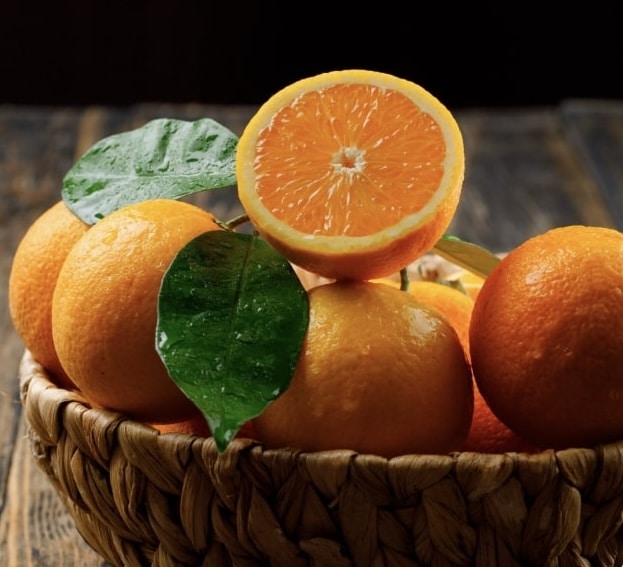
oranges in a basket
Zesty, juicy, and refreshing, oranges are packed with vitamin C, which protects brain cells and supports neurotransmitter production.
Regular intake improves memory, learning, and mood, making citrus fruits a simple yet powerful addition to your child’s diet.
For a refreshing way to add more vitamin C to your child’s meals, try serving oranges fresh or in a colourful fruit salad.
Ingredients:
- 1 orange, peeled and sliced
Recipe:
- Serve fresh orange slices as part of breakfast or snacks.
- Or add them to a fruit salad for a refreshing brain-boosting treat.
Conclusion
Giving your child the right foods for their brain development is very important. The list of brain food for kids is endless, but good foods like eggs, berries, and whole grains can help your child with their focus and thinking. A balanced diet helps fuel the body and supports a healthy brain.
This lets your child do well in their schoolwork and feel good every day. You can use our easy snack ideas to help your child eat healthy and have fun with it.
Try a nutrition plan now to help your child’s brain function and help them stay sharp. A healthy brain starts with what they eat, so give them the good foods they need!
Frequently Asked Questions
What items develop the brain of kids by eating?
Foods like eggs, oily fish, nuts, whole grains, berries, and leafy greens help children’s brains develop. They supply omega-3s, antioxidants, choline, and vitamins that boost memory, focus, and overall cognitive growth in kids.
Which are the best brain foods for a child?
The best brain food for children includes salmon, blueberries, walnuts, spinach, eggs, yoghurt, and beans. These provide omega-3 fatty acids, protein, vitamins, and minerals that strengthen brain cells, improve concentration, and support long-term cognitive performance naturally.
Are there any foods that improve brain performance?
Yes, brain-boosting foods for kids like dark chocolate, avocados, whole grains, turmeric, and seeds improve brain performance. They enhance blood flow, memory, and focus while protecting against oxidative stress, helping children think clearly, learn faster, and perform better academically.
Can snacks be both healthy and beneficial for brain function in kids?
Yes. Brain food snacks for kids, like apple slices with nut butter, yoghurt with berries, or hummus with veggie sticks, are amazing brain food for big kids and toddlers. They provide steady energy, essential nutrients, and improve focus without the sugar spikes linked to processed snacks.
What role do omega-3 fatty acids play in a child’s brain health?
Omega-3 fatty acids like DHA and EPA found in salmon, sardines, walnuts, and flaxseeds are vital for children’s brain health. They support memory, improve focus, boost learning capacity, and protect brain cells during development and growth.
Are there specific vitamins or minerals that enhance brain function in children?
Yes, vitamins and minerals like iron, zinc, vitamin B12, vitamin D, folate, and choline enhance brain function. They support memory, concentration, nerve communication, and energy levels, all crucial for learning and healthy brain development in children.
How does nutrition impact a child’s cognitive development?
Good nutrition directly fuels a child’s brain. Nutrient-rich foods improve memory, focus, and mood, while poor diets high in sugar and processed foods can harm concentration, slow learning, and even impact long-term academic and cognitive performance.
How much food is necessary to sharpen a child’s brain?
It’s not about quantity but quality. Balanced meals with proteins, whole grains, fruits, veggies, and healthy fats are key. Overeating won’t sharpen the brain, but nutrient-dense foods in the right portions will increase brainpower.
What are the recipes of brain food for babies and kids?
Brain-boosting recipes include salmon patties, spinach parathas, berry smoothies, egg muffins, and yoghurt parfaits. For babies, try mashed avocado, pureed lentils, or soft scrambled eggs. Each recipe provides essential nutrients for healthy brain growth and function.
How can I increase my child’s brain power?
You can increase brain power by offering nutrient-dense foods like fish, nuts, greens, and eggs, ensuring regular meals, proper hydration, and balanced snacks. Combine this with good sleep, outdoor play, and mental stimulation for stronger development.
Is there a recommended daily routine for feeding kids brain foods?
A good routine is to spread brain foods across meals: protein-rich breakfast, fruit or nut snacks, veggies at lunch, and omega-3 sources like fish or flaxseeds at dinner.

